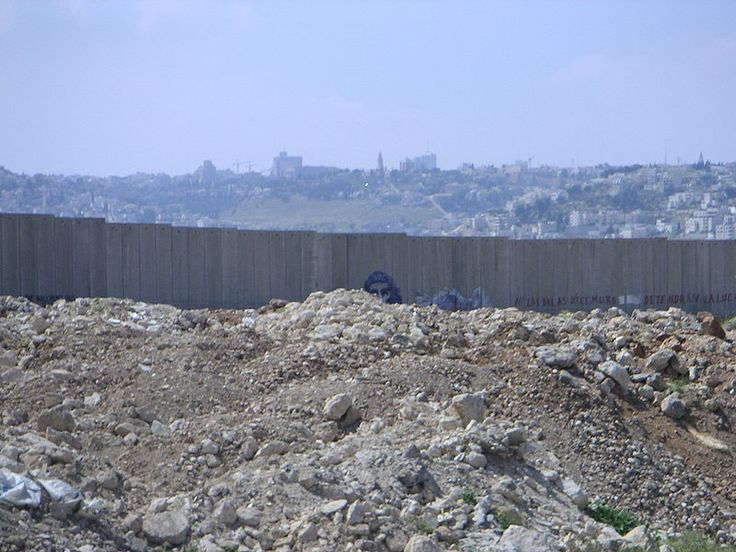The recent UK election ended with a surprising result — the Conservatives lost their majority, and they now have to negotiate a coalition government with the DUP, a small party from Northern Ireland. This situation is refocusing attention on the challenges of Northern Ireland, which have not been seen in international headlines for 20 years.

Northern Ireland’s story is important, partially because it helps clarify the double standards that exist when it comes to Israel and international opinion. In many cases, actions taken by Northern Ireland are considered “peaceful,” whereas those same actions — when taken by Israel — are considered “racist” or “apartheid.”
Approximately 100 years ago, most of Ireland split off from the UK, and became an independent country called the Republic of Ireland; but Northern Ireland, the top section of the new country, did not split off.
Beginning in the late 1960s, there was a strong and often violent campaign fought in Northern Ireland to separate from the UK, and become part of the independent Republic of Ireland. This campaign was led by the Catholic IRA and Sinn Fein, who fought against pro-UK Protestant groups and the British Army.
The tactics of the IRA were infamous — they included bombings and terror attacks — and lasted for thirty years, from 1969 to 1998. This period was known as “the Troubles,” and it claimed the lives of 3,500 people — 1,800 of them civilians. In 1998, the Good Friday Agreement was signed, in which the Sinn Fein and the IRA promised to stop their violence, and to join the other parties in working to heal the old divides; they would continue advocating for Northern Ireland to leave the UK, but through the political process, not violence.
There are many links between the conflict in Northern Ireland and the Israeli-Palestinian conflict. In both cases, the two sides were generally split on religious lines. Furthermore, the IRA was launching its terror attacks at the same time that the Palestine Liberation Organization — led by Yasser Arafat — was launching its bombings and hijackings in Israel. The two groups also had strong links, with the IRA and PLO training together in Syria, exchanging bomb-making techniques, and even launching a joint attack in Brussels in 1979.
But what is most significant about the Northern Ireland conflict, is that it helps show the double standard that exists in media coverage about Israel.
Belfast is the capital of Northern Ireland, and within it, there are both Protestant and Catholic communities. All around the city, there close to 50 “peace walls” — physical walls that keep Protestants and Catholics apart.
These walls were set up as a security measure to stop violence between the two communities; they stretch as tall as 30 feet high, and many have barbed wire on top. Some of the walls have gates to allow people to pass through; they are open during the day, and closed at night. In fact, there have been countless peace walls built since the Good Friday agreement, and peace walls now exist all over the country. There are currently 109 peace walls in Northern Ireland. Each year, tensions flare near some of the walls. This video captures the ongoing tensions between the two sides, and explains how the walls help keep the peace.
Israel, of course, also built a wall in order to stop violence and terrorism. The Second Intifada claimed the lives of more than 1,100 Israelis, through suicide bombings in cafes, buses, cinemas and other locations all over the country. In 2003, Israel began constructing a barrier to stop these barbaric terror attacks against civilians. Since the building of the wall, there has been a 90% reduction in the number of terrorist attacks in Israel.
Yet Israel’s wall is labeled not as a security wall or a “peace” wall — but an “apartheid wall.” Why is that? And why are the walls keeping Catholics and Protestants apart in Northern Ireland still called “peace walls”?
All around the world, many countries are building walls to protect their citizens. Saudi Arabia is building a 600-mile wall to keep ISIS out. India is building massive walls on its borders with Bangladesh and Pakistan. One can agree with these decisions, or disagree with them. But in the end, there is only one country that is attacked for building a wall to stop terrorism and to protect innocent civilians: Israel.
And when people criticize only Israel for trying to keep its people safe — and hold the Jewish state to a double standard — they are guilty of antisemitism.
Contributed by Aron White, CAMERA intern. Originally published at UK Media Watch and then republished at the Algemeiner, and translated into Polish and republished by Listy z naszego sadu.
